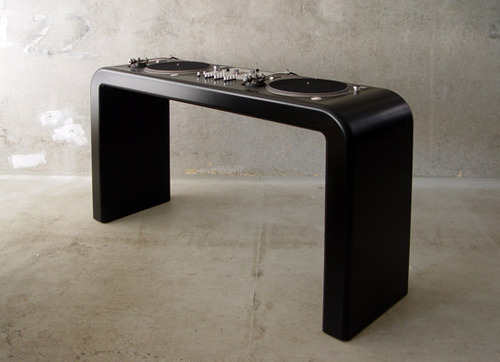
The resounding disappointment in the launch of the iPad was the fact that it was really nothing more than a larger device that's been around for two and a half years. Any revolution that this thing would cause should have already taken place, right? Well, not necessarily. Size matters.
Once the App Store launched a few months out, the initial apps were pretty basic and were really like glossy toys: UrbanSpoon and Labyrinth utilizing the accelerometer, Ocarina and Shazam using the microphone, Bebot and iSteam using the multi-touch screen and so on. They're all really cool, but really just toys. Google Maps ported over their service to work with the iPhone, and Apple had their Remote to help you better use iTunes while at home. Two years later, the apps don't really use the iPhone's abilities as a toolset anymore, they're really just utilizing the giant swarm of users and massive amount of quick money some have earned when apps get popular. So the apps developed for the iPad will probably not be revolutionary toys so much as tools for a massive user base.
The image above is a simple, elegantly-designed turntable I stumbled on. Turntables and keyboards will be to the iPad what flashlight apps are for the iPhone.

This is a quick mockup by Stu Maschwitz, developer of the Magic Bullet Coloring software used by amateur and professional filmmakers, imagining his application on the iPad. Pretty cool, right? How about knowing that it'll replace 80% of the market for this:

This is the Black Magic Design DaVinci Resolve, which is the color timing table for most everything out of Hollywood (and student films if they can afford it). These things cost hundreds of thousands of dollars, and color-grading by professionals cost $50-$1500 per hour (depending on the format and additional services [syncing sound, rotoscoping, etc]). How long before that table of 100 knobs becomes a table of 3 iPads?* All Red Giant needs to do is sell Magic Bullet as a $250 iPad app.
WebTV was supposed to be a complete revolution in entertainment. It was to combine television viewing and internet browsing in one. Eventually it could have lead to DVR's, sharing clips over email and eventually social networks, live broadcasts, interactive advertisements, purchasing items on shows while you're watching, and so on. Could have. It was slow as molasses if it ever worked at all, buggy, expensive, and dead in the water within a few months, even after being purchased by Microsoft. Networking issues aside, who thought it'd be a great idea to be reading type twenty feet away on an interlaced screen (remember, these were the days before HDTV)?
Today, it's hard to nail how people really consume entertainment. More watch video online than on television, however the numbers aren't from streaming feature films. People watch bite-sized chunks on their computers, and more are moving to their mobile devices. Films and television, though with decent success on Hulu, haven't killed cable. In fact cable providers are trying to build a good symbiosis with your television set and your computer, but acknowledging both as separate devices.
Well guess what, Apple made a point to call the iPad a new appliance; not "laptop" or "phone." So let's imagine WebTV as not a black keyboard on your lap, but a multi-touch remote control that compliments what occurs onscreen. Remember that scene in Tomorrow Never Dies where James Bond drives the car from his phone?
Boom.
Of course, I recognize the irony in criticizing 1990's technology and then referencing 1990's future tech in the same paragraph, but I'm certain we'll be coming across tons of great uses of the functional device on our lap that controls what's onscreen. Read the tea-leaves closer, and I'd point out that Apple has decidedly not developed the Apple TV whatsoever in the last few years because they may be holding some sort of new development for the right point of time. The Apple TV essentially throws online content to your television, but a 6-button controller has been way too limiting to do anything worthwhile.
I love my iPhone. Like, love it. We legitimately need larger real estate for everything the iPhone can do to be best utilized, which the iPad will bring. I just doubt the iPad as it appears now can be as functional as a virtual mouse as I'd like it to be (how can I use it with Final Cut Pro? Photoshop? After Effects?). Maybe I will stick with the ModBook after all.
Read iPad Response Pt. 1: Augmented Reality
- - -
*(I didn't say the DaVinci was completely obsolete or that color grading is now entirely in the hands of the filmmaker, because though they may be really expensive, a good grader is worth their salt and can really save a lot of mistakes made in production.)
No comments:
Post a Comment